Meet our Board of Directors
We invite you to meet our board of directors. As a non profit organization, Linux Professional Institute (LPI) relies on the efforts of numerous staff and partners from around the world. We are proud to introduce you to our committed group of volunteers who lead the organization at the board level.
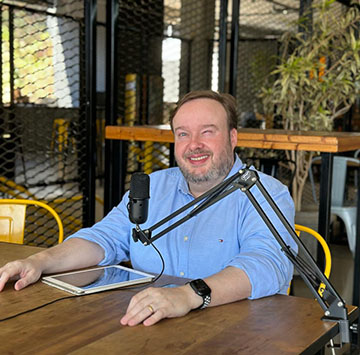
Uirá Ribeiro (Chair)
Prof. Uirá Ribeiro is a Senior C-Level Executive with solid Information Technology background, Software Developer and Internet Architect Engineer with a 23-year career. He stay on top of trends in Open Source technology. As an educator, has reached the top, as headmaster of a Brazilian University for more than 15 years.
He holds a Master in Informatics and Bachelor in Data Processing, among other fifteen IT certifications, such as “AWS Certified Cloud Practitioner”, “AWS Certified Architect”, “AWS Certified SysOps”, “CompTIA Linux+ce”, “Scrum Foundation Professional Certificate”, “Linux Foundation Certified System Administrator”, “Linux Foundation Certified Kubernetes Administrator (CKA)”, “CompTIA Project+”, “CompTIA Linux+”, “LPIC-3”, “CompTIA Security+ce”, “RHCSA”, “RHCE” and “Red Hat Specialist in Containers and Kubernetes”.
He is the author of 11 books, recognized in the world IT market, published in English, Portuguese, Spanish and Italian, as LPI Publishing Partner.
CEO and founder of Linux Certification Edutech, for 15 years he has taught Linux online classes, with more than 14,000 certified students.
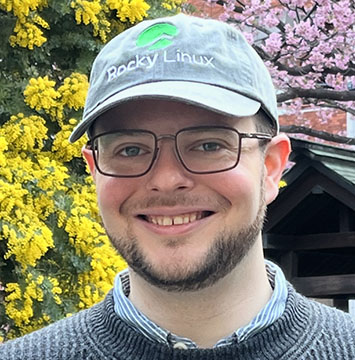
Brian Clemens (Vice-Chair)
Brian Clemens is a founder and the Vice President of the Rocky Enterprise Software Foundation, and a founder and the Program Manager of Rocky Linux. His interest and experience with Linux and FOSS began with Fedora Core 4, since which he has championed FOSS across a wide range of organizations. Since co-founding Rocky Linux in 2020, he has worked exclusively on Open Source full-time.
Having worked a diverse range of IT careers, from running cable to supporting multinational telecom infrastructure deployments, he brings a wide breadth of experience and understanding to the organizations he participates in.
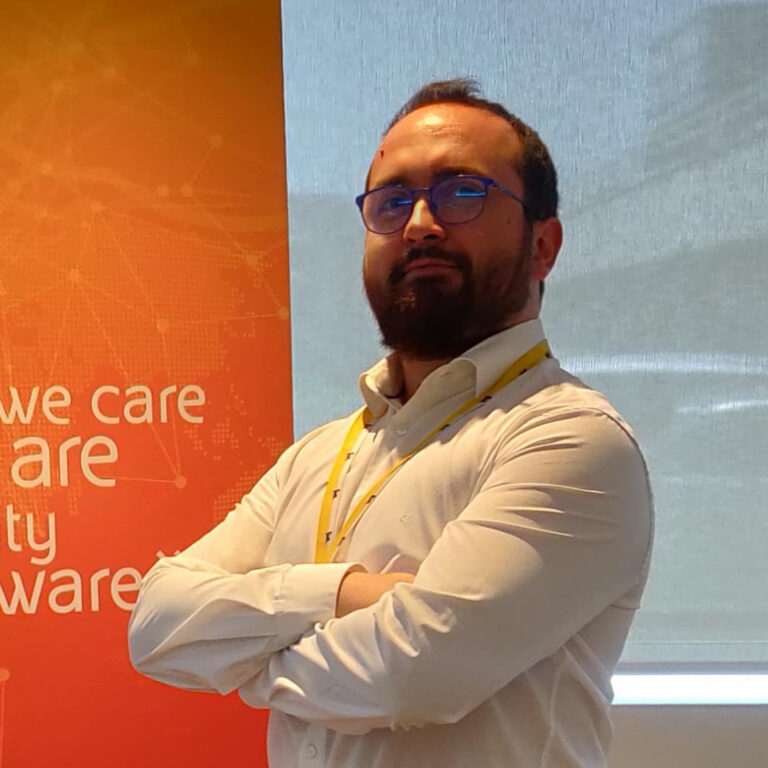
Simone Davide Bertulli
Simone Davide Bertulli is a cybersecurity professional with over 8 years of experience working in the Cyber Defence Center of a major Italian Oil & Gas company. For the past 3 years, Simone has also been involved in the telecommunications field.
Simone has written several articles for the LPI blog, including the “Security Essentials” and “LPI Membership Journey” series.
Additionally, Simone has experience as a tech reviewer for manuals and technical courses, covering both IT security topics and infrastructure-related areas such as networking and servers.
Since 2024, Simone has been an LPI Approved Trainer.
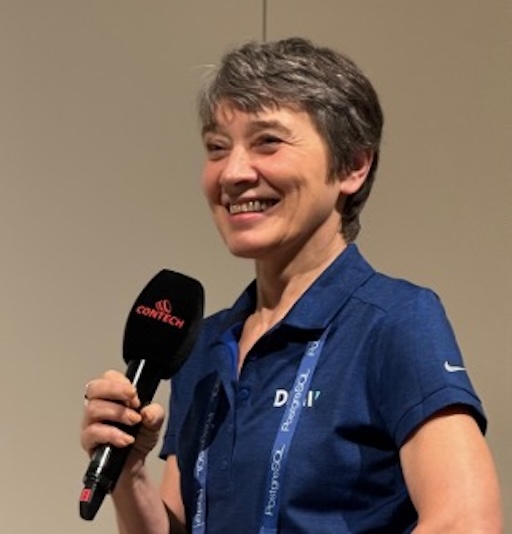
Henrietta Dombrovskaya
Hettie Dombrovskaya is a database researcher and practitioner with over 40 years of experience. While database have always being her passion, her encounter with PostgreSQL in 2011 opened a new page in her career. Having discovered the power and the driving force of Free and Open Source Software, she gradually transitioned from a user to an active supporter of FOSS, as an advocate, a donor and an educator.
At present, Hettie is a Database Architect at DRW Holdings in Chicago Il, responsible for everything Postgres-related in her organization. She is a Postgres Contributor, an organizer of the Chicago PostgreSQL Uset Group and one of the organizers of PG Day Chicago. She is a founder of Prairie Postgres NFP, a not-for-profit dedicated to Postgres education in the Midwest states of the USA, and a Communications Chair of the ACM Chicago Chapter.
You can often see Hettie presenting at different Open Source conferences and/or teaching database performance classes. Her book “PostgreSQL Query Optimization” summarizes her journey from proprietary systems to PostgreSQL.
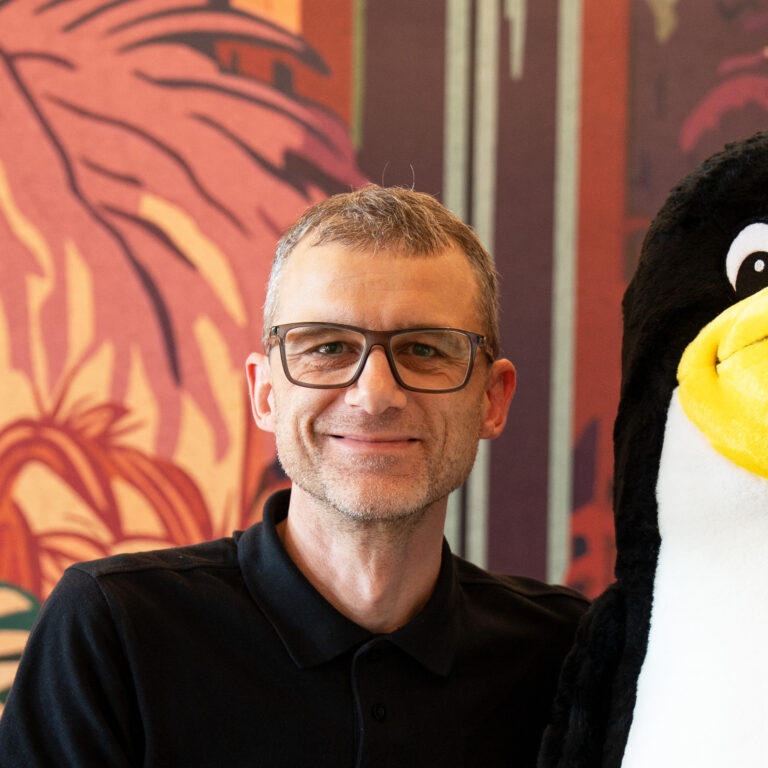
Werner Fischer
Werner Fischer is an Austrian who has been a passionate Linux user for more than 20 years. In the early 2000s Werner studied Computer and Media Security at the University of Applied Sciences in Hagenberg.
In 2003 Werner started his internship at the IBM Advanced Technical Support Lab in Mainz, Germany. Besides using Linux in the lab, Werner removed the former commercial operating system from his laptop and installed Fedora 1. After Werner’s thesis he stayed at IBM until 2005, working on Linux storage projects. During this time Werner had the opportunity to write the Linux chapters of two IBM Redbooks at IBM Almaden Research Center and IBM Raleigh.
After that Werner joined the German server company Thomas-Krenn, where over the past 20 years he has worked in various roles: developing virtualized Linux high availability clusters, managing the web operations and knowledge transfer team, building the publicly accessible Thomas-Krenn-Wiki where the company shares its server knowledge, and much more.
Werner is passionate about sharing knowledge. He has published more than 1,000 articles in the Thomas-Krenn-Wiki. Werner also writes for magazines from time to time, e.g. Linux/ADMIN Magazine or the German c’t and iX magazines.
Recently, Werner became the first LPI Approved Trainer in Austria.
Werner cares about free and open source software and privacy. It is important to him that everyone is in control of their own data and that corporations are not the masters of private data of individuals and companies. So Werner encourages people not only to use FOSS on their computers, but also to use open source solutions like /e/OS on their smartphones.
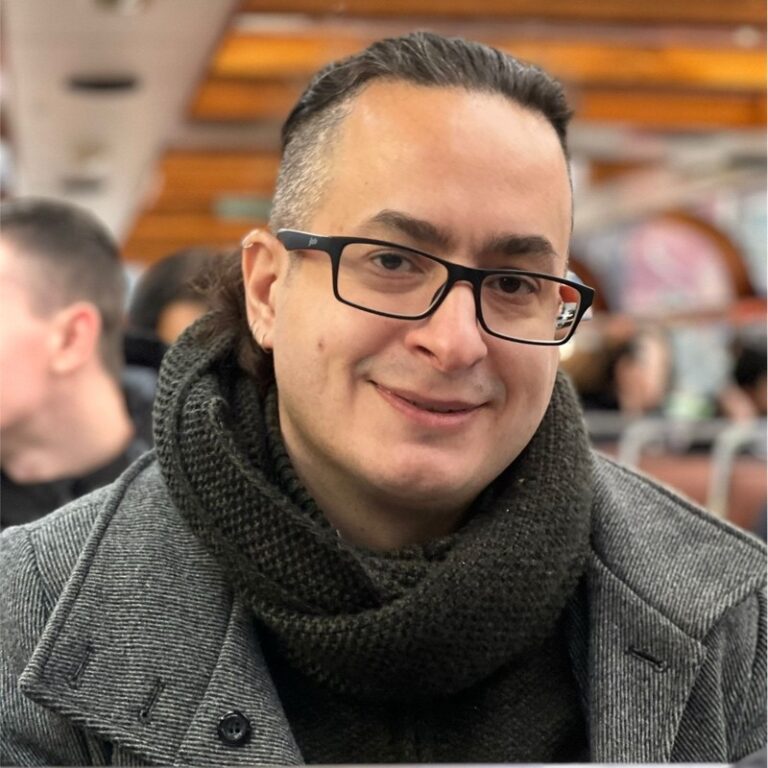
Tiago Felipe Goncalves
Tiago Felipe Gonçalves is a Senior Network Engineer with a 24-year career deeply immersed in Linux and open source technologies. As an Italo-Brazilian professional currently based in the Netherlands, he brings a unique global perspective to the open source community, having worked across multiple regions and diverse technological environments.
Currently serving in dual roles as a Senior Network Engineer at Booking.com and a Senior Network Development Engineer at IX.br, Tiago specializes in complex infrastructure design, network automation, and security implementation. His technical expertise spans Linux, BSD, routing protocols, cloud architectures, containerization, and programming in Python, Shell, Perl, Rust, and Golang.
Tiago holds a portfolio of 44+ certifications, including the complete Linux Professional Institute certification track (LPIC-1, LPIC-2, LPIC-3 Virtualization and Containerization, and BSD Specialist). His education includes a post-graduate degree in Advanced Cisco Networks Management, a specialization in Computer Networks from the State University of Campinas, and a graduate degree in Technology in Computer Networks.
Tiago served as a MANRS (Mutually Agreed Norms for Routing Security) Ambassador, where he mentors fellows, promotes routing security awareness, and contributes to global internet stability. As a passionate advocate for open source, Tiago has designed and implemented numerous innovative solutions that demonstrate how open source technologies can solve complex challenges while promoting accessibility and knowledge sharing.
Fluent in Portuguese, English, and Italian, with elementary proficiency in Spanish and Dutch, Tiago brings a multicultural perspective to his work. A family man with one child, he embodies the qualities of persistence, resilience, commitment, and a self-taught approach to professional growth that align perfectly with the open source ethos.
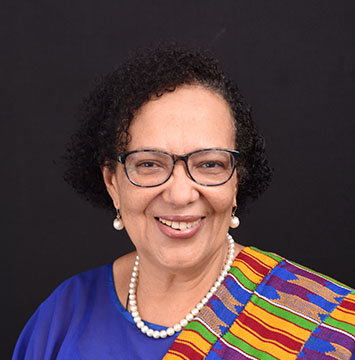
Dorothy Gordon
Dorothy Gordon is a global leader in the field of technology and development with a special focus on Africa. She works to bring about greater engagement and action on policy, implementation and evaluation issues relating to the impact of technology on society. She is a Pan-Africanist and a feminist.
Dorothy is the current Chair of the Inter-Governmental Council for UNESCO’s Information for All Programme with a mandate to build a more inclusive Knowledge Society. She is a member of the Global Partnership on Artificial Intelligence expert working group on innovation and commercialisation. Previously she served on the Global Commission on Internet Governance and worked for many years as a manager with the United Nations Development Programme.
Her commitment to Open Source technologies stems from the fact that they build greater technology ownership, innovation and diversity. As the founding Director-General of the Ghana-India Kofi Annan Centre of Excellence in ICT she ensured that the backend systems were run exclusively on Open Source technology. During her tenure the Centre hosted FOSSFA (the Free Software and Open Source Foundation for Africa) of which she was a Council member. Previously on the Board of Creative Commons, Dorothy currently serves on its Advisory Council. She is a strong advocate of the ROAM principles (internet universality) and all dimensions of the Open Movement.
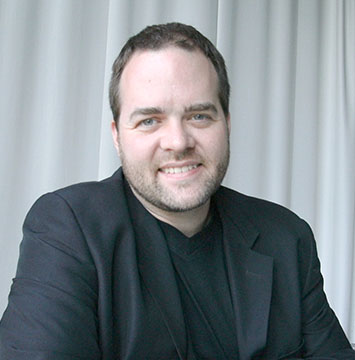
Klaus Knopper
Klaus Knopper is an Electrical Engineer with a history of three decades of Unix (different brands) and especially Linux system administration and developer of customized Linux-based operating systems, passionate hardware+software tinkerer.
As main job, regular professor for Software Engineering, IT Security and informatics in the programs of Business Informatics / Information Management (Bachelor + Master) in the faculty of Business Economics and Vice President for Digitalization at the University of Applied Sciences Kaiserslautern / Germany. Also self-employed software developer and consultant.
Klaus is located in Europe and in the german-speaking corner thereof, was co-founder of the former LinuxTag expo and conference started in 1996, and speaker at various Linux-related events (USA, GB, India).
In 2000 he presented the Live GNU/Linux system Knoppix at the Atlanta Linux Showcase. While Knoppix was rather targeted at developers and for software evaluation and hardware compatibility tests at that time, than at beginners, it helped many to gain experience with a Linux-based Desktop, or rescue data from defective other operating systems without modifying disks.
The ADRIANE accessibility extension of Knoppix allows blind computer users to get an easy start with Linux on a talking text console, with no or few sighted help needed.
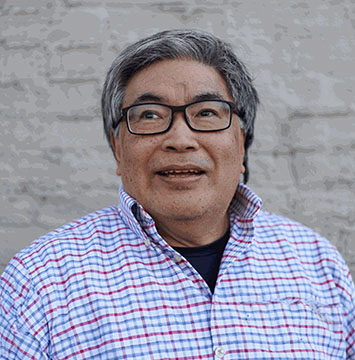
Ted Matsumura
Ted Matsumura has worked in the tech industry since the mid 1980s, and with linux and FOSS since the mid 1990s. As a product manager for Adaptec Japan, he has promoted Linux and FOSS at start-ups as well as larger companies as a product manager including Intel, Packet Engines, Penguin Computing, and smaller companies.
Ted has contributed on the “Crouton” project which was an early method to enable Linux to run on Chromebooks, and authored an ebook on this.
Ted also worked with Linux kernel developers to develop the first Gigabit Ethernet Linux drivers while working at Packet Engines. Ted has taught Linux and computer sciences as an adjunct professor, and currently works at a multinational firm on secure cloud environments, and devsecops. He resides in the the Pacific Northwest.

Michinori Nakahara
Michinori Nakahara spent over 33 years at IBM-Japan in various leadership positions, specializing in the Asia-Pacific region. He then served as Chief Training Officer for a Tokyo-based open source software start-up. In November 2022, he was made Japan General Manager for AutoGrid Systems.
Having worked in Japan, studied in both Japan and the United States and worked closely with US and European IT companies, he brings a unique and varied perspective to the Linux and Open Source community as a member of the LPI’s Board of Directors.
With a professional history with Linux and Open Source Software that goes back to 1999, as manager of Linux business development at IBM-Japan, and responsibility for working with IBM’s global partners, his experience with Linux/OSS based systems is extensive.
Such a familiarity with the technology and the major players both inside and outside the region, motivated him to contribute beyond his workplace, serving on various committees, forums and in organizations dedicated to Linux and Open Source education and policies in Japan.
Michinori Nakahara sees serving on the LPI Board of Directors with other seasoned Linux professionals as an opportunity to further expand his knowledge and put his decades of experience in Asia and the global Linux community to work for the furtherment of LPI, Open Source and the world.
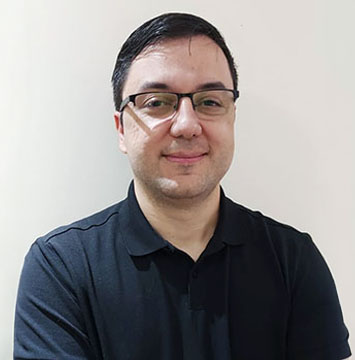
Ricardo Prudenciato
Graduated in Information Technology and Post Graduated in Computer Networks, Ricardo Prudenciato’s career has always been totally focused on Linux and Open Source technologies, mainly working with support and administration of systems and their services.
In 20 years of experience, he has worked in most of the levels that a Linux professional will go throutgh in his career, from intern to senior, leading and coordinating teams. He also had the opportunity to work in different types of companies, from small to large organizations such as IBM, Portugal Telecom and Vivo (Brazil).
In the last 5 years his focus has been on teaching and mentoring professionals in their journeys with Linux and Open Source, sharing the knowledge acquired over the years, through online training focused on Linux and especially on LPI Certifications.
He has published courses on Introduction to GNU/Linux, Shell Script Programming and Preparations for LPIC-1 and LPIC-2 Certifications, with more than 38,000 students.

Jill Ratkevic
As a New Jersey native who arrived in Silicon Valley with her developer-husband at the beginning of the dot-com era, Jill Ratkevic has witnessed a great deal. Her first “Silicon Valley job” came about when her printer repairman introduced her to a friend of a friend who was founding the very first open-source embedded Linux company. Although she did not yet understand the significance, they were better than Red Hat. She returned home from the interview with a Finnish developer’s green card and no salary, much to her husband’s horror since the company was not funded yet, but she embodied the spirit of Silicon Valley.
Sun’s Scott McNealy and Java’s James Gosling trusted her to go to Capitol Hill to advocate for Open Source’s presence in movement systems. She believed that spending millions upon millions of dollars repeatedly on software licenses when citizens contributed to the code was a waste of money. She acknowledged that Open Source code is not the best in every aspect of the software landscape, which is why benchmarks and comparisons are necessary. Often, Open Source prevails.
Her journey from advocacy in 1999 to being central to the SCO v. IBM lawsuit as the ZDNet reporter who had that scoop was truly circumstantial, though it gave her a career in software. This career has paralleled and brought her the fortune of being sought out by CEOs from Sun to Salesforce and many others now undergoing a revamp.
She is happy to support the community after 25 years, moving from foundation to enforcement. She calls for ethical mavericks to step up.

Thiago Sobral
Thiago Sobral works with Linux, Free, and Open Source software since 1998. He began working as a hardware intern, then he moved to be a C ANSI programmer in Linux. He switched to be a consultant sometime later and then started working as an instructor as well. At that time he realized that he was a FOSS Evangelist.
He is a member of the Free Software Association in Brazil, was part of the Free and Open Source movement there at the beginning of the century, is author of articles, presenter at various events in Brazil and abroad.
His technical background goes beyond operating systems and programming. He has worked with various technologies and their integration, from infrastructure to applications covering networks, security and all the issues that come up in customer environments or those where he works as a SysAdmin. He has worked for small and large enterprises, is a former employee of Conectiva, Red Hat and SUSE where he was able to experience and understands the needs and value of enterprise open source.
He is part of the Digital Law Commission in Sao Paulo, was a lecturer and trainer, created FOSS events and participated in hundreds. He has a strong technical background and then moved more towards business, strategy and marketing. Today he is Global Offering Manager for Open Source at IBM. There he is responsible for the entire offering, from technical engagement to the overall business generated by open source. Therefore, he is heavily involved in various communities around the world and has a holistic view of the needs of the communities, businesses, professionals and early career developers.
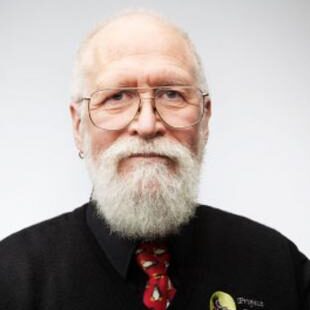
Jon “maddog” Hall (Chair Emeritus)
Jon “maddog” Hall is the Board Chair Emeritus of the Linux Professional Institute. Since 1969, Jon “maddog” Hall has been a programmer, systems designer, systems administrator, product manager, technical marketing manager, author and educator, currently working as an independent consultant.
While not a founding member of LPI, he helped formulate some of the concepts and donated personal money to allow the first 200 tests be tested for psychometrics.
Jon “maddog” Hall has concentrated on Unix systems since 1980 and Linux systems since 1994, when he first met Linus Torvalds and correctly recognized the commercial importance of Linux and Free and open source Software.
As the Executive Director of Linux International(TM) Jon “maddog” Hall has traveled the world speaking on the benefits of open source Software having received his BS in Commerce and Engineering from Drexel University, and his MSCS from RPI in Troy, New York.